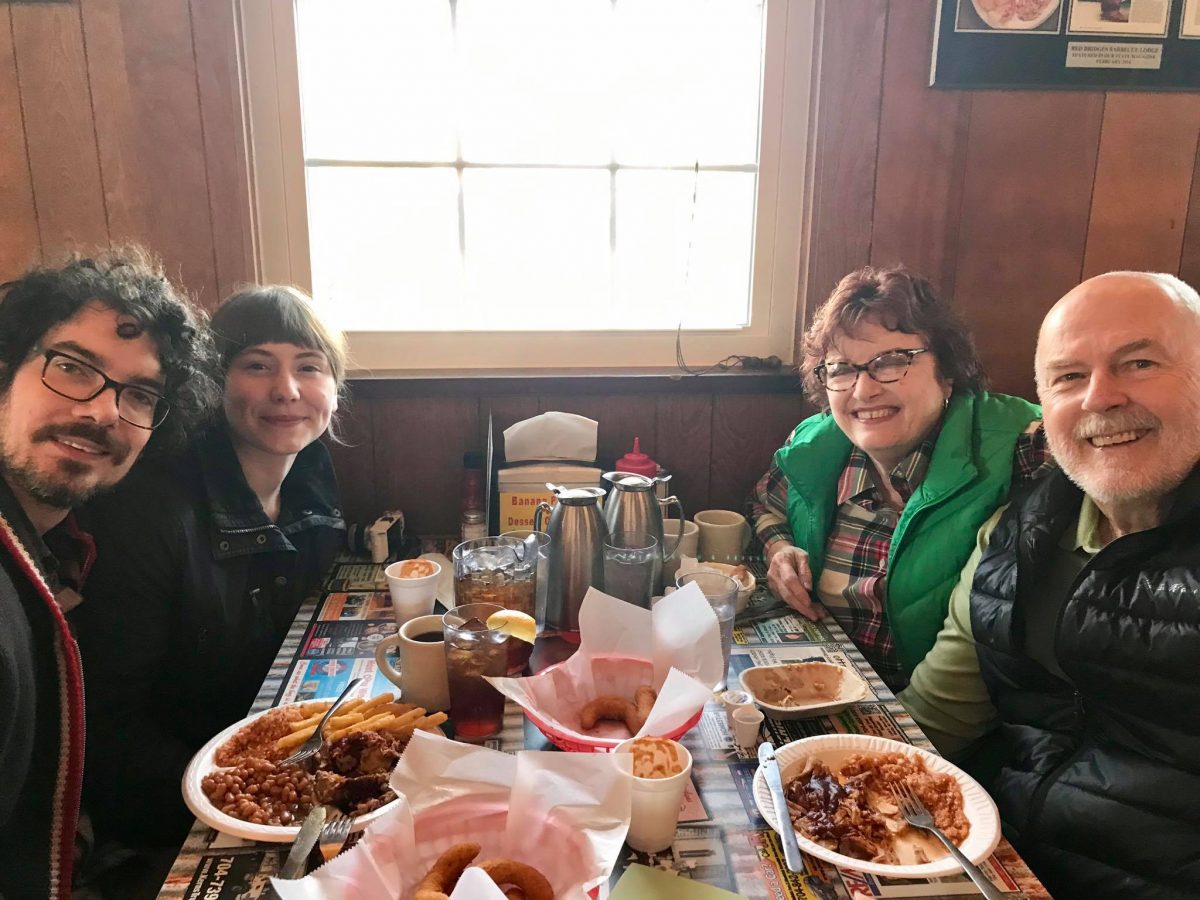Two years and a week ago, I went to the Flyer’s Beer Bracket Challenge award ceremony at the Young Avenue Deli. It was an odd time, as the reports of Covid-19 on the news were creeping closer and closer to home. People weren’t quite sure how to act. Some of us shook hands, while some people opted for a more sanitary fist bump or even just waving at each other. Our film editor’s wife had to keep reminding him not to touch his face.
It was the beginning of a working vacation for me. No, I don’t mean the time I spent working from home. I had planned to take a week to go visit family in North Carolina and, while there, interview barbecue pitmasters for a cover story for Memphis magazine. Again, no one was quite sure how to act. Some people shook my hand; some didn’t. But I ate a lot of great barbecue, had many interesting conversations about the history of different regional variations, and occasionally worried about this strange new disease everyone was talking about.
After the North Carolina portion of the trip, my fiancée and I stopped in Martin, Tennessee, where my sister and brother-in-law lived at the time. My mother was in town from Arizona. We were worried about her being in a full airplane, of course, but we weren’t sure just how worried we should be. And she had already bought the tickets — months ago, in fact. So we stayed home or went to the park.
With each day, the situation became more dire, until my work email started blowing up. We would be working from home. Everyone should come to the office, pick up their computers, and take ’em somewhere isolated and with internet. The Flyer’s then-editor Bruce VanWyngarden joked, “See you in June,” thinking we’d be home for two weeks, tops.
When I left Memphis for nine days of barbecue “research” and visiting family, Covid felt like something I should be vaguely concerned about. By the time I returned, the World Health Organization had declared Covid a worldwide pandemic. The Flyer offices were a ghost town when I ventured there to retrieve my computer. It felt somehow wrong. Newsrooms, even ones as small as ours, are loud and no little bit chaotic. It was just me, the humming of fluorescent lights, and the accumulated dust, made obvious by the hastily packed-up computers and personal possessions.
We all have our own stories. For most of the world, the first few weeks or months of the pandemic were truly individual experiences. The guidelines seemed to change so quickly, at the mercy of rapidly progressing research into a new virus and the whims of an unprepared supply chain. We worried about our loved ones. We worried about the state of the nation. We worked, and our professions gave us a degree of safety — or they put us in harm’s way. I’ve worked as a cook, a dishwasher, a package handler — I can imagine what it must have been like to be on the job as one of those people in March and April 2020. Let alone a nurse, doctor, or other healthcare professional. Or a grocery store worker.
Then, it seemed at least that we settled into a pattern of waiting. There were portions of the pandemic that seemed distinct from others — the Tiger King binges, the bread-baking, the long walks outside. Even if you weren’t binging or baking (I wasn’t), you couldn’t help hearing about it.
So much has changed, now, two years after the pandemic was officially declared. Frankly, I don’t think things will ever be as they were before. In the U.S. alone, 964,000 people have died from Covid. Globally, that number is more than 6 million.
We have lost people we’ll never get back, an incalculable loss. But the rest of us have to carry on, and forge some kind of equilibrium, a “normal.” It will just look a little different; it will take time. People have lost loved ones, friends, businesses. Young people have lost out on formative experiences. But I hope that we have gained things as well, though it will likely take just as much time to find perspective, to help us realize just what they may be. I hope that, in some aspect, virtual meetings will stick around. I hope we will be more aware of others’ health, of the need for inclusivity — of what we lose without it.
More than anything, I hope we can be patient with each other as we try to emerge from this pandemic hole. And that we refuse to leave anyone behind.
Jesse Davis
jesse@memphisflyer.com
